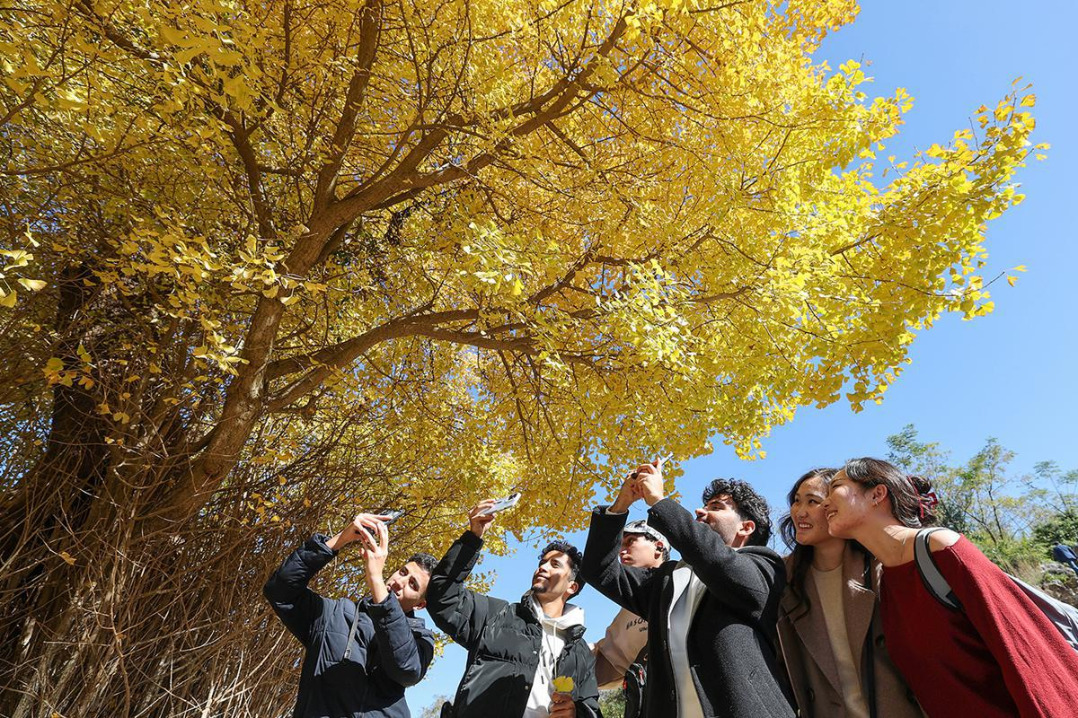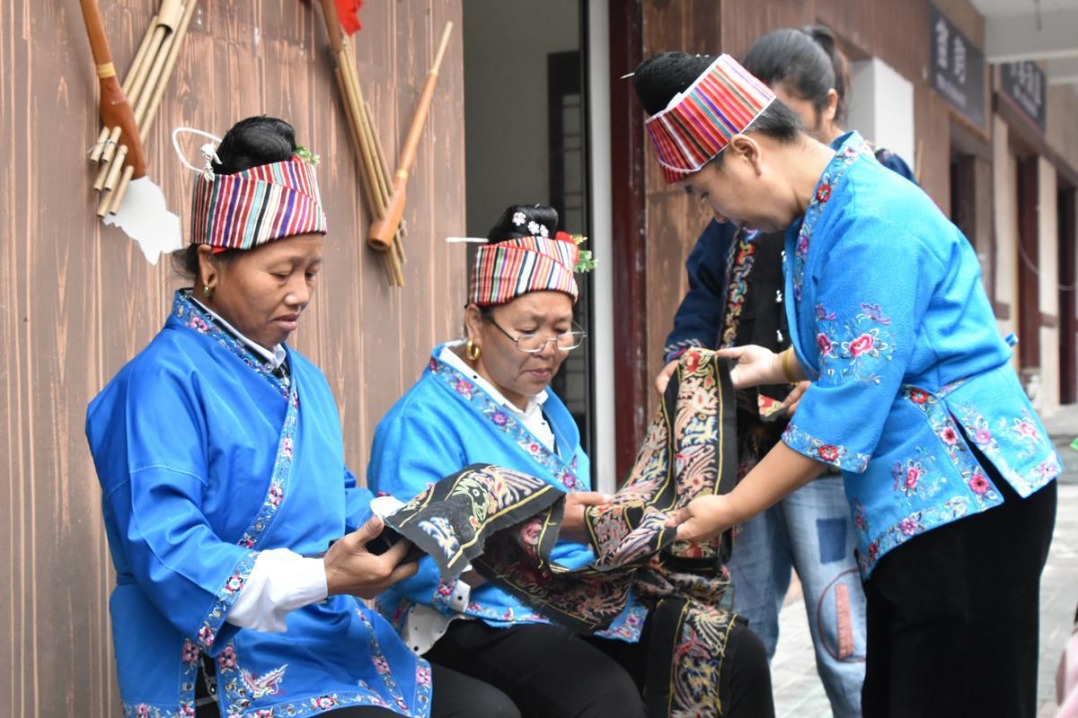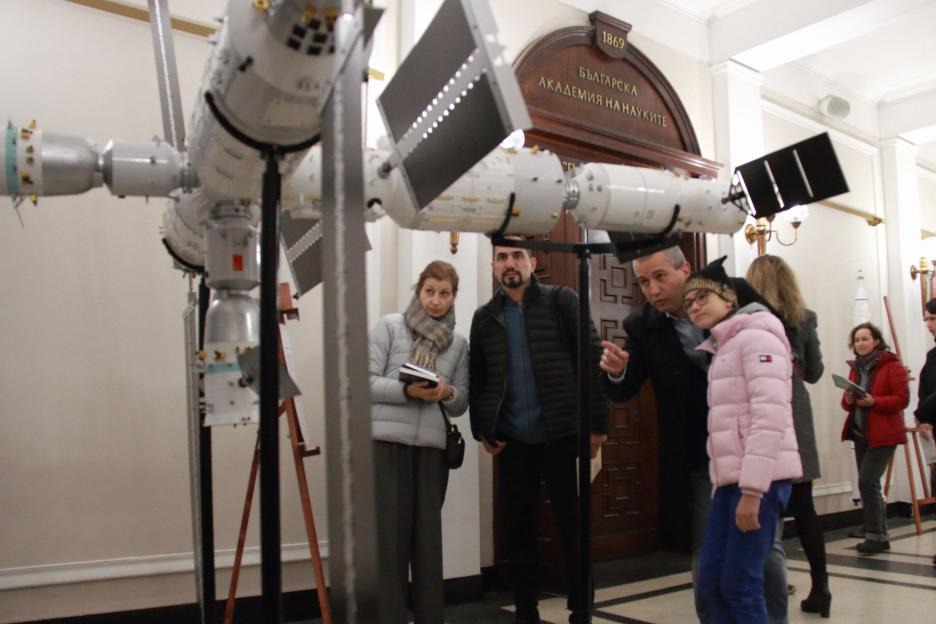Datang's smart factories help sew up title of world's 'sock capital'


Editor's note: This series of stories looks at local enterprises in specialized sectors that have a share in global markets.
Yang Yucheng practically lives in his hosiery factory these days, inspecting the production and quality of products and communicating with overseas clients about their orders.
The machines in his factory in Datang, a town in the city of Zhuji, Zhejiang province, have run at full capacity since early spring, which is usually the off-season.
"We bought new equipment at the start of this year to ramp up production and keep up with incoming orders," said Yang, the owner of Haina Textile Technology Co.
"They can't come in person because of the COVID-19 pandemic, so we do everything via the internet, and I need to make sure that every detail of our products is up to standard."
Exports surge
Haina specializes in athletic socks, the favorite of his international clients, with major export markets being Europe and North America. In the first quarter, Haina exported more than 10 million pairs of socks, a year-on-year increase of nearly 87 percent.
Yang, a native of Central China's Hunan province, quit his foreign trade job in Yiwu, Zhejiang, at the end of 2013, bought 60 hosiery machines and started his own company in Datang.
In 2021, the total export value of his company reached more than $23 million, despite the challenges of the pandemic.
Besides market research, the effective management of client relationships is also important, said Yang, whose company regularly develops new socks and sends samples to current and potential clients for market tests. "But ultimately, it is the quality that matters."
Yang's company is one of over 6,000 enterprises-not counting individual businesses and family mills, which would bring the total to 10,000-producing and processing socks in Datang.
While the town is not known to the vast majority of people outside of China, the socks and stockings worn around the world likely come from Datang. The town's hosiery industry currently turns out as many as 27 billion pairs of socks, worth 75 billion yuan ($11.2 billion), each year-accounting for 70 percent of the national market and 35 percent of the global market.
In other words, one-third of all pairs of socks worn on the planet are made in Datang, which is why the town has long been known as the "sock capital of the world".
The story of the town goes back to the late 1970s, when locals first saw business opportunities in making socks. They bought used hosiery equipment, refashioned the equipment into manually operated machines, and were soon making socks to sell along roadsides.
Within a decade or so, a hosiery industry had gradually taken shape in the town. In 2004, Datang produced 9 billion pairs of socks to become the world's largest sock producer, according to the Los Angeles Times.
Now there are more than 350 enterprises in Datang with annual sales of over 20 million yuan each, and about 100 have annual sales topping 100 million yuan.
But it hasn't all been smooth sailing. By 2014, it was apparent that the traditionally labor-intensive hosiery industry, which had focused mainly on low-end products, could no longer sustain itself, as profit margins dropped to as low as 5 percent. In addition, issues such as environmental pollution, unsafe production and fierce price competition came to the fore.
Upgrading pursued
Within a year, thousands of substandard workshops and mills were shut down, and the remaining ones have committed to upgrading.
Zhejiang Kaishili Technologies Co is one of them. In recent years, the company, established in 2010, has invested heavily in product research and development. At present, it annually produces more than 1,000 types of high-end socks made from choice wool, integrating elements of traditional Chinese culture and arts.
"What we are making are socks that are not just to be worn, but to be showcased as an article of fashion and identity," said Qi Jianjun, the company's founder and CEO.
Qi has set up his own research and development team and collaborated with colleges and universities to improve the raw materials and product designs.
"We spend 7 to 10 percent of the annual revenue on R&D," Qi said. "Our aim is to produce the best and the trendiest products."
In Datang, R&D is now a common practice. For example, the nylon developed by local company Yongxin, when made into leggings and undergarments, can provide heat of up to 3 C for the body. Another company, Wanglai Knitting, specializes in hoof socks for horses and exports roughly 100,000 pairs annually to Europe and New Zealand, where the company is widely known among equestrians.
Qi has also been digitally transforming his factory. For example, with a self-developed, 3D-powered design simulation system, it now takes only three to five days to settle product design with international clients, compared with a month in the past, when paper-based designs were the norm. In addition, the 160 machines in his plant can show in real time the manufacturing progress of each product and the status of each order, much of which had to be recorded manually in the past.
"In fact, you can also see the information in an app here," Qi said, pointing to his mobile phone. "A corresponding app for the clients will be put in place soon so that they can see everything, like we do here. It improves efficiency for both sides."
Many companies in Datang are following suit and making their factories more intelligent. Yang's Haina Textile Technology Co, for example, has installed an enterprise resource planning system, which manages procedures-from raw material purchases to sales-to reduce production and delivery times.
Over the years, the development of Datang's hosiery business has enriched locals and benefited those from around China who have come to the town to pursue a better life.
The number of people in Datang with hukou, or household registration, stands at 76,600, while 111,000 others who live there come from elsewhere, mostly from outside Zhejiang. A total of 150,000 people are employed in the hosiery industry, earning on average an annual income of more than 70,000 yuan.

- Hundreds gather in Guangzhou for ninth Understanding China Conference
- Landmark reached in construction of Jintang Undersea Tunnel
- Shanghai Disney Resort hosts disability inclusion forum
- Guizhou university campus evacuated over suspected gas leak
- China launches online platform for drug price registration
- Beijing enters peak flu season with adolescents most affected





































